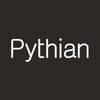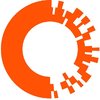Filter interviews by
Websitica Technologies Interview Questions and Answers
Be the first one to contribute and help others!
Interview questions from similar companies
I applied via Naukri.com and was interviewed in Sep 2024. There were 2 interview rounds.
Test Paper Task, which is to be given in a Word Document.
1. WireFraming
2. User Story Writing
3. Use Case
4. Sequence Diagram
(19 Questions)
- Q1. Education Background and Work Experience
- Q2. How Educational Background Helped in IT Industry
- Ans.
Educational background in IT industry provides foundational knowledge, skills, and problem-solving abilities.
Educational background in computer science or related field helps in understanding technical concepts and languages used in IT industry.
Analytical and critical thinking skills acquired through education are essential for analyzing data and solving complex problems in IT projects.
Project management and communicat...
- Q3. 4 Requirement Development Component required in Req. gathering phases
- Ans.
Requirement development components in requirement gathering phases
Stakeholder analysis
Interviews with stakeholders
Document analysis
Observations
Prototyping
Brainstorming sessions
- Q4. What are Requirement Elicitation technique
- Ans.
Requirement elicitation techniques are methods used to gather and clarify requirements from stakeholders.
Interviews with stakeholders to understand their needs and expectations
Surveys and questionnaires to collect feedback from a larger group of stakeholders
Observations of current processes or systems to identify areas for improvement
Prototyping to visualize requirements and gather feedback early in the process
Brainsto...
- Q5. What is the next step after requirement gathering
- Ans.
The next step after requirement gathering is analyzing the gathered requirements to identify patterns, prioritize needs, and create a solution.
Analyze the gathered requirements to identify patterns and common themes
Prioritize the needs and requirements based on business goals and constraints
Create a solution design or proposal that addresses the identified requirements
Collaborate with stakeholders to validate the propo
- Q6. Difference between Validation & Verification
- Ans.
Validation ensures the product meets the customer's requirements, while verification ensures the product is built correctly.
Validation is checking if the right product is being built, while verification is checking if the product is being built right.
Validation involves evaluating the product against customer requirements, while verification involves checking the product against specifications.
Validation is subjective ...
- Q7. What is [project initiation plan
- Ans.
A project initiation plan is a document that outlines the objectives, scope, and deliverables of a project.
Defines the purpose and goals of the project
Identifies key stakeholders and their roles
Outlines the project scope and constraints
Includes a high-level timeline and budget estimate
Provides a roadmap for project execution
- Q8. Roles of different Stakeholders in the Business Analysis process
- Ans.
Stakeholders in business analysis include project sponsors, end users, developers, and testers.
Project sponsors provide funding and support for the project.
End users provide input on requirements and usability.
Developers implement the solutions based on requirements.
Testers ensure the quality of the final product.
Other stakeholders may include managers, customers, and regulatory bodies.
- Q9. What is RACI metrics
- Ans.
RACI metrics are used to define roles and responsibilities within a project or organization.
RACI stands for Responsible, Accountable, Consulted, and Informed
It helps clarify who is responsible for what tasks and decisions
Example: R - John is responsible for data analysis, A - Sarah is accountable for project success, C - Mark is consulted for technical expertise, I - Emily is informed of project updates
- Q10. What is RTM metrics
- Ans.
RTM metrics refer to the metrics used to track and measure the requirements traceability matrix.
RTM metrics help in tracking the progress of requirements throughout the project lifecycle.
They measure the coverage of requirements, identify gaps, and ensure all requirements are met.
Examples of RTM metrics include requirement status (e.g. implemented, in progress, pending), requirement source, and requirement priority.
- Q11. What is the MoSCoW matrix
- Ans.
MoSCoW matrix is a prioritization technique used in project management to categorize requirements into Must have, Should have, Could have, and Won't have.
MoSCoW stands for Must have, Should have, Could have, and Won't have
Must have - essential requirements that are critical for project success
Should have - important requirements that are high priority but not critical
Could have - desirable requirements that are nice to...
- Q12. How to prioritize the requirement
- Ans.
Requirements should be prioritized based on business value, impact on stakeholders, and feasibility.
Identify and prioritize requirements that align with the organization's strategic goals.
Consider the impact on stakeholders and prioritize requirements that address their needs.
Assess the feasibility of implementing each requirement and prioritize those that are achievable within constraints.
Use techniques like MoSCoW pr...
- Q13. What are the use cases
- Ans.
Use cases are specific scenarios where a product or service can be used to solve a particular problem or achieve a specific goal.
Identifying business needs and requirements
Improving processes and workflows
Enhancing decision-making through data analysis
Optimizing resource allocation
Increasing customer satisfaction
Reducing costs and increasing efficiency
- Q14. What does it mean by 'Alternate flow of Use Cases'
- Ans.
Alternate flow of Use Cases refers to scenarios in which the main flow of a use case is deviated due to certain conditions or exceptions.
Alternate flow describes deviations from the main flow of a use case
It represents different paths that a use case can take based on conditions or exceptions
These alternate flows are usually documented to ensure all possible scenarios are considered
Examples include error handling, vali...
- Q15. How JIRA is used in project management
- Ans.
JIRA is a project management tool used for tracking tasks, issues, and progress in projects.
JIRA allows users to create and assign tasks to team members
It provides a centralized platform for tracking project progress and deadlines
Users can create custom workflows and dashboards to visualize project status
JIRA integrates with other tools like Confluence and Bitbucket for seamless collaboration
- Q16. Ever Worked on pre-sales? (Effort & Cost estimation)
- Ans.
Yes, I have experience working on pre-sales efforts and cost estimation.
I have worked on creating proposals and estimates for potential clients
I have experience analyzing requirements and determining the effort needed for a project
I have collaborated with sales teams to provide accurate cost estimates
I have used tools and techniques such as cost-benefit analysis and risk assessment in pre-sales activities
- Q17. Explain the previous project where you worked
- Ans.
Implemented a data analytics solution for a retail company to optimize inventory management
Analyzed historical sales data to identify trends and patterns
Developed predictive models to forecast demand and optimize inventory levels
Collaborated with cross-functional teams to implement the solution and train end users
- Q18. What is Business Process Modeling
- Ans.
Business Process Modeling is the visual representation of a business process to analyze, improve, and optimize its efficiency.
It involves creating diagrams or flowcharts to illustrate the steps, activities, and decisions involved in a business process.
Business Process Modeling helps in identifying bottlenecks, redundancies, and inefficiencies in a process.
It can be used to simulate different scenarios and analyze the i...
- Q19. This company is in the Power Sector, How will you work in this new domain?
- Ans.
I will leverage my analytical skills to understand the unique challenges and opportunities in the Power Sector and collaborate with stakeholders to drive effective solutions.
Conduct thorough research on the Power Sector to understand industry trends, regulations, and key players
Collaborate with internal teams and stakeholders to gather requirements and identify pain points
Utilize data analysis and modeling techniques t...
Interview Preparation Tips
Skills evaluated in this interview

I applied via Naukri.com and was interviewed in Aug 2024. There was 1 interview round.
(10 Questions)
- Q1. Tell me about yourself, and project architecture. What are your day-to-day responsibilities?
- Ans.
I am a Data Engineer with experience in designing and implementing project architectures. My day-to-day responsibilities include data processing, ETL tasks, and ensuring data quality.
Designing and implementing project architectures for data processing
Performing ETL tasks to extract, transform, and load data into the system
Ensuring data quality and integrity through data validation and cleansing
Collaborating with cross-...
- Q2. SQL: To calculate the difference in marks for each student ID and marks across different years?
- Ans.
Use SQL to calculate the difference in marks for each student ID across different years.
Use a self join on the table to compare marks for the same student ID across different years.
Calculate the difference in marks by subtracting the marks from different years.
Group the results by student ID to get the difference in marks for each student.
- Q3. SQL: Statewise which gender purchase is the most?
- Ans.
The answer to the question is that in which state which gender makes the most purchases.
Aggregate the data by state and gender to calculate the total purchases made by each gender in each state.
Identify the gender with the highest total purchases in each state.
Present the results in a table or chart for easy visualization.
- Q4. What is ADF ??
- Ans.
ADF stands for Azure Data Factory, a cloud-based data integration service that allows you to create, schedule, and manage data pipelines.
ADF is used for building, scheduling, and monitoring data pipelines to move and transform data from various sources to destinations.
It supports data integration between various data stores such as Azure SQL Database, Azure Blob Storage, and on-premises data sources.
ADF provides a visu...
- Q5. Pysaprk Coding Question?
- Q6. What is DAG ??
- Ans.
DAG stands for Directed Acyclic Graph, a data structure used to represent dependencies between tasks in a workflow.
DAG is a collection of nodes connected by edges, where each edge has a direction and there are no cycles.
It is commonly used in data engineering for representing data pipelines and workflows.
DAGs help in visualizing and optimizing the order of tasks to be executed in a workflow.
Popular tools like Apache Ai...
- Q7. What is Lineage ??
- Ans.
Lineage refers to the history and origin of data, including its source, transformations, and dependencies.
Lineage helps in understanding how data is generated, processed, and transformed throughout its lifecycle.
It tracks the flow of data from its source to its destination, including any intermediate steps or transformations.
Lineage is important for data governance, data quality, and troubleshooting data issues.
Example...
- Q8. How does Spark handle fault tolerance?
- Ans.
Spark handles fault tolerance through resilient distributed datasets (RDDs) and lineage tracking.
Spark achieves fault tolerance through RDDs, which are immutable distributed collections of objects that can be rebuilt if a partition is lost.
RDDs track the lineage of transformations applied to the data, allowing lost partitions to be recomputed based on the original data and transformations.
Spark also replicates data par...
- Q9. There are four cores and four worker nodes in Spark. How many jobs will run in parallel?
- Ans.
Only one job will run in parallel in Spark with four cores and four worker nodes.
In Spark, each core can only run one task at a time, so with four cores, only four tasks can run concurrently.
Since there are four worker nodes, each with four cores, a total of four tasks can run in parallel.
Therefore, only one job will run in parallel in this scenario.
- Q10. What are the optimisation techniques you have used in your project ?
- Ans.
I have used techniques like indexing, query optimization, and parallel processing in my projects.
Indexing: Used to improve the speed of data retrieval by creating indexes on columns frequently used in queries.
Query optimization: Rewriting queries to improve efficiency and reduce execution time.
Parallel processing: Distributing tasks across multiple processors to speed up data processing.
Caching: Storing frequently acce...
Skills evaluated in this interview

I applied via Naukri.com and was interviewed in Jul 2024. There were 4 interview rounds.
(3 Questions)
- Q1. JavaScript concepts
- Q2. JavaScript coding
- Q3. Angular questions
(2 Questions)
- Q1. Angular questions
- Q2. Angular implementation explanation
- Ans.
Angular implementation explanation
Angular is a popular front-end framework for building web applications
Uses TypeScript for development
Components, services, modules, and directives are key concepts in Angular
Data binding, dependency injection, and routing are important features
Example: Creating a new component in Angular - ng generate component my-component
(1 Question)
- Q1. Casual questions and discussion
(1 Question)
- Q1. Salary discussion and casual discussion
Skills evaluated in this interview

(2 Questions)
- Q1. Multi module maven project
- Q2. Selenium project structure
- Ans.
Selenium project structure includes organizing test cases, page objects, utilities, and configuration files.
Test cases should be organized in a separate folder
Page objects should be stored in a separate package
Utilities like helper classes, constants, and drivers should be in a separate package
Configuration files like properties files should be stored in a separate folder
Follow a modular approach for easy maintenance a
(2 Questions)
- Q1. How will you create a test plan ?
- Ans.
A test plan is created by defining objectives, scope, resources, schedule, and approach for testing.
Define objectives and scope of testing
Identify resources needed for testing
Establish a schedule for testing activities
Outline the approach and methodologies for testing
Include risk assessment and mitigation strategies
Document test scenarios, test cases, and test data
Define roles and responsibilities of team members
- Q2. Scenario based questions
Skills evaluated in this interview

I applied via campus placement at Jagan Institute of Management Studies (JIMS) and was interviewed in Feb 2024. There was 1 interview round.
(3 Questions)
- Q1. What is Ecommerce
- Ans.
Ecommerce is the buying and selling of goods and services over the internet.
Ecommerce involves online transactions between businesses and consumers
It includes online retail stores like Amazon and eBay
Ecommerce platforms facilitate the buying and selling process
Payment gateways ensure secure transactions
- Q2. Give advantage and disadvantage of E-commerce
- Ans.
Advantages and disadvantages of E-commerce
Advantage: Increased reach and accessibility to a global market
Advantage: Lower overhead costs compared to traditional brick-and-mortar stores
Advantage: Ability to personalize marketing and target specific customer segments
Disadvantage: Security concerns related to online transactions and data breaches
Disadvantage: Lack of physical interaction with products before purchase
Disad...
- Q3. What is H lookup and V lookup
- Ans.
H lookup and V lookup are functions in Excel used to search for a value in a table and return a corresponding value.
H lookup stands for horizontal lookup and searches for a value in the first row of a table and returns a value in the same column.
V lookup stands for vertical lookup and searches for a value in the first column of a table and returns a value in the same row.
Both functions are commonly used in Excel for da...
Interview Preparation Tips

I applied via Naukri.com and was interviewed in Feb 2024. There were 3 interview rounds.
Basic aptitude test.
They’ll give you some situations related to sales and up selling and will ask you to make a videos on that scenario to check your selling skills.
(1 Question)
- Q1. Managerial round with their senior manager.
Interview Preparation Tips

I applied via Indeed and was interviewed in Aug 2023. There were 4 interview rounds.

(4 Questions)
- Q1. Questions on basic PixiJs stuff and stuff about OOP.
- Q2. What is the use of Loader?
- Ans.
Loader is used to load external assets such as images, sounds, and data into a game or application.
Load images, sounds, and data from external sources into the game or application
Improve loading times by preloading assets before they are needed
Handle loading errors and provide feedback to the user
Examples: loading character sprites, background music, level data
- Q3. What is the use of Interface in TypeScript?
- Ans.
Interfaces in TypeScript are used to define the structure of objects. They provide a way to enforce a certain shape on objects.
Interfaces allow us to define the structure of an object by specifying the properties and their types.
Interfaces can be used to enforce a certain shape on objects, ensuring that they have the required properties.
Interfaces can also be used for type checking and to provide better documentation f...
- Q4. What is object pooling?
- Ans.
Object pooling is a design pattern where a set of objects are created and reused instead of creating new instances.
Improves performance by reducing memory allocation and deallocation overhead
Objects are kept in a pool and reused when needed
Commonly used in game development for frequently created and destroyed objects
Asked about previous projects and given a task to make a simple circle and change its color to a random color on click using pixiJS .
(1 Question)
- Q1. HR round was basic discussion on my prvs work and what I know about gammastack and stuff.

I applied via Referral and was interviewed in Feb 2024. There were 2 interview rounds.
Setup a cluster and find the bottleneck of performance.
(1 Question)
- Q1. Ways to deal with latency in Cassandra
- Ans.
Ways to optimize latency in Cassandra
Use appropriate data modeling to reduce the number of queries needed
Optimize queries by using appropriate indexes and clustering keys
Tune the Cassandra configuration settings for better performance
Use caching mechanisms like Memcached or Redis to reduce latency
Consider using partitioning strategies to distribute data evenly across nodes

System Analyst Interview Questions & Answers
Foiwe Info Global Solutionposted on 24 Apr 2024
Aptituide consists of 20 simple questions
GD round was done among 10 people in each grouup in any 1 topic of our choice
(2 Questions)
- Q1. Asked about my strengths and weakness, ability to relocate, anf some direct scenarios
- Q2. Strength and weakness
Interview Preparation Tips

Software Developer Interview Questions & Answers
Pragmasys Consulting LLPposted on 21 Jun 2024
(1 Question)
- Q1. Describe oops concept.
- Ans.
OOPs concept stands for Object-Oriented Programming, which is a programming paradigm based on the concept of objects.
OOPs focuses on creating objects that contain both data and methods to manipulate that data.
It emphasizes concepts like inheritance, encapsulation, polymorphism, and abstraction.
Inheritance allows a class to inherit properties and behavior from another class.
Encapsulation restricts access to certain comp...
Websitica Technologies Interview FAQs
Tell us how to improve this page.
Interview Questions for Popular Designations
Interview Questions from Similar Companies
Websitica Technologies Reviews and Ratings
based on 2 reviews
Rating in categories
|
Senior Web Developer
3
salaries
| ₹5 L/yr - ₹5 L/yr |

Luxoft

Thryve Digital

Iksula

Mantra Technologies
Calculate your in-hand salary
- Home >
- Interviews >
- Websitica Technologies Interview Questions




